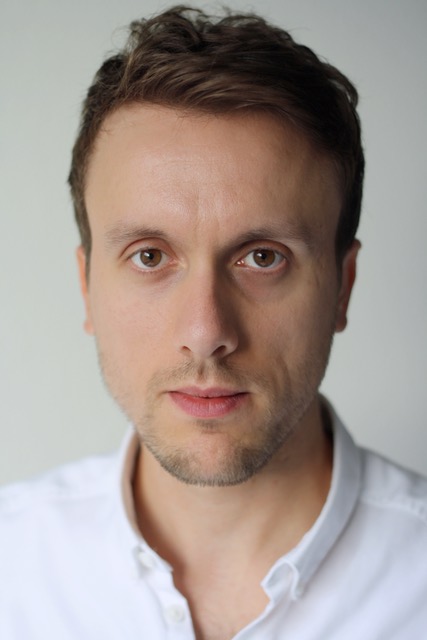Researcher spotlight #24: Fabio Trecca
The spotlight is on Fabio Trecca, the newest member of COBE's Human Subjects Committee

Hi Fabio, what is your background and job role at AU?
I was born and raised in Rome, Italy. There I got my degree in Psychology before moving to Denmark and finishing my studies here. I have a Ph.d. in Child Language from the University of Southern Denmark in Odense. Currently I am a postdoctoral researcher at the Department of Linguistics, Cognitive Science, and Semiotics at the School of Communication and Culture.
What are your main areas of research?
My primary area of research is language processing and acquisition, and I am particularly interested in the role that the sound structure of language plays in its processability and learnability. I am currently part of the DFF-funded project "The Puzzle of Danish", in which we are investigating whether the "mumbling" pronunciation of Danish makes it a particularly hard language to understand and learn. Besides trying to solve the puzzle of Danish, I am involved in a number of studies on how language development in Danish-learning children is affected by social, economic, and environmental factors, as well as in research on statistical learning. In general, my research is based on collaborations with a number of colleagues both in Denmark and abroad.
Are you involved with any teaching at the moment?
I have recently concluded an intensive course on eye-tracking and statistical techniques for the students in the B.Sc. in Cognitive Science. I have designed and run the course in collaboration with Riccardo Fusaroli as part of the Computational Modeling for Cognitive Science class. The course was structured as a 5-day mix of lectures and hands-on experience with some of the eye-tracking equipment available at COBE Lab.
How did you hear about Cognition and Behavior Lab?
I was introduced to COBE Lab on my very first day of work at Aarhus University back in 2017. I knew that I was going to use the Lab quite a lot, so we thought that it'd be best to get started right away!
Have you used the Lab? If so, what are the benefits for researchers?
I have already used the Lab in a number of studies -- primarily studies involving reaction times, mouse-tracking, and eye-tracking. COBE Lab is a fantastic facility with great equipment, a well-working infrastructure, and competent personnel. Running experiments at COBE Lab is a very rewarding experience.
Is there a particular recommendation you would like to pass on to other researchers? Something you wish you had known before you started, or just a useful trick.
I am probably not supposed to say this, but they have great coffee at the Lab. [Editor's note: I'll allow it. It is very good.]
Could you recommend one academic book to fellow colleagues that you think is of great interest?
One recent book that had a great influence on my research is "Creating Language. Integrating Evolution, Acquisition, and Processing" by Morten H. Christiansen and Nick Chater, published by MIT Press in 2016. The book is a state-of-the-art review of salient topics in psycholinguistics. Highly recommended.
Away from your research, what do you enjoy doing?
I spend much of my spare time either playing the bass, watching old reruns of Twin Peaks, or rooting for AS Roma.
Finally, which Associated Researcher would you like to see under 'Spotlight' next time?
Byurakn Ishkhanyan